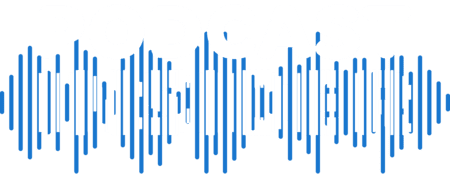Podcast: Play in new window | Download (Duration: 24:00 — 33.0MB) | Embed
 Why Did You Start Your Podcast?
Why Did You Start Your Podcast?
The inspiration behind starting a podcast is unique to each creator. This week we dive into the reasons why people choose to start a show, ranging from personal passion of sharing your own knowledge to showcasing your business.
Today’s hosts: Todd Cochrane and Mike Dell
Podcasters choose to create podcasts for a variety of reasons. Here are some of them:
Sharing Knowledge: Many podcasters are experts or enthusiasts in a specific field and want to share their knowledge and passion with others. This can range from academic subjects to hobbies and everything in between.
Building Community: Podcasting can be a way to build and engage with a community of like-minded people. This is especially true for niche topics, where podcasters can create a space for people with similar interests to gather and learn from each other.
Creativity and Self-Expression: Podcasting is a form of media that allows for creative freedom. Podcasters can experiment with format, content, style, and more. It’s a platform where they can truly express themselves.
Career Opportunities: Some podcasters start podcasting as a way to advance their careers. This can be by building a personal brand, demonstrating expertise or networking within an industry. Podcasts can also serve as a portfolio for individuals in fields like journalism, media production or entertainment.
Monetization: While not all podcasts generate significant revenue, some podcasters are able to monetize their content through sponsorships, advertising, Patreon support, selling merchandise or other means.
Education: Podcasts can be a great tool for education. Educators and institutions may create podcasts to supplement traditional teaching methods or to reach a wider audience beyond the classroom.
Storytelling: Some podcasters are natural storytellers and podcasts provide a unique platform to share these narratives. This can range from true crime stories to science fiction narratives.
Interviews and Conversations: Podcasting can provide an opportunity to have long, in-depth conversations with interesting people. Many podcasters enjoy the chance to learn from their guests and provide a platform for diverse voices to be heard.
Advocacy: Podcasts can be a powerful tool for raising awareness about social issues, causes or movements. They can give a platform to underrepresented voices and provide nuanced discussion around complex topics.
Personal Development: The process of creating and maintaining a podcast can result in valuable personal growth. Skills such as public speaking, audio editing, marketing and networking can all be honed through podcasting.
Entertainment: Simply put, podcasting can be fun! Whether it’s a comedy show, a movie review or a role-playing game, many podcasters enjoy entertaining their listeners.
Note that these motivations often overlap and a single podcaster might be driven by several of these reasons.
Setting a goal for your podcast is crucial for several reasons:
Direction: Having a clear goal provides direction and focus for your podcast. It helps you determine what content to produce, who your target audience is and how you will reach them. Without a clear goal, you may find yourself floundering or producing content that feels disconnected or inconsistent.
Motivation: Creating and maintaining a podcast requires a significant amount of effort and time. Having a clear goal can help keep you motivated, especially during periods when you might feel discouraged or overwhelmed.
Measurement of Success: Goals give you a benchmark to measure your progress and success. If your goal is to reach a certain number of listeners, for example, tracking your listener statistics will give you a clear idea of how well you’re doing. Without clear goals, it’s difficult to measure whether you’re making progress or achieving success.
Resource Allocation: Knowing your goal can help you decide where to invest your resources. For example, if your goal is to maximize listener engagement, you might choose to invest more time into creating interactive content or building a community on social media. If your goal is to generate revenue, you might invest in advertising or high-quality production equipment.
Branding: Your goals can help shape your podcast’s brand. If your goal is to be the go-to source for industry news, for instance, this will influence the tone, content and marketing of your podcast.
Audience Retention: When you have a clear goal, it helps to create a consistent experience for your listeners. They know what to expect when they tune in and, if they like what they hear, they’re more likely to keep coming back for more.
Strategic Partnerships and Monetization: If your goal involves partnerships or monetization, it’s vital to be clear about this upfront. Potential partners and sponsors will want to know your podcast’s goals to see if they align with their own.
Remember that your goals should be specific, measurable, achievable and relevant to set yourself up for success.
The best place for support with any Blubrry product or service is our ticket system. Tickets give the whole team access vs. direct emails or calls.
Fill out our listener survey at surveys.blubrry.com/podcastinsider.
- Hosting customers can schedule a one-on-one call with Todd or a tech checkup with Mike.
- todd@blubrry.com and mike@blubrry.com





